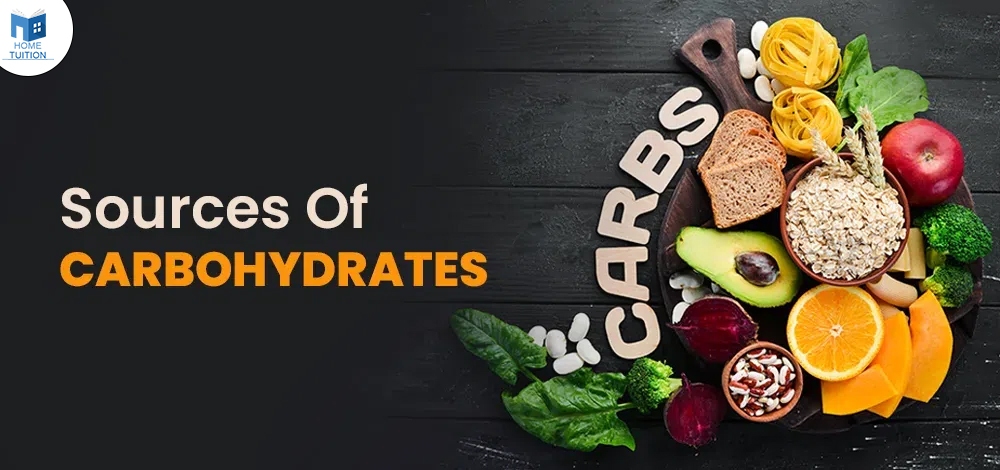Carbohydrates
Carbohydrates are biomolecules comprising carbon, oxygen, and hydrogen atoms, with a hydrogen-to-oxygen ratio of 2:1, akin to water. As macronutrients, they are a primary energy source for the body, converted into sugar for cellular energy usage.

Nutrition Sources of Carbohydrates
Carbohydrates come from various sources, with some being healthy and others unhealthy. Healthy sources include fresh fruits, vegetables, corn, potatoes, milk, and dairy. Unhealthy sources comprise soda, white bread, artificial sugar, and processed foods. They exist in different forms like sugars, starch, and fibers, contributing to a diverse carbohydrate intake.
Also Read: Respiration
Types of Carbohydrates
Below are the types of carbohydrate-
- Simple carbohydrates
- Starchy Carbohydrates
- Fibrous Carbohydrates
- Complex carbohydrates
Also Read: Human Life Cycle
Simple Carbohydrates
Fresh fruits such as apples, oranges, bananas, pineapple, sweet potatoes, and berries are nutritious sources of simple carbohydrates. Avoid artificial sugars and highly processed foods. Milk is also rich in simple carbohydrates.
Fibrous Carbohydrates
Find fibrous carbohydrates in fresh vegetables like pumpkin, carrots, tomatoes, beans, broccoli, cucumbers, and squash.
Complex Carbohydrates
Beans, peas, whole grains, barley, oats, wild rice, and brown rice are examples of complex carbohydrates. These carbohydrates contain starch and fiber, making them beneficial for health. They also help maintain stable blood sugar levels.
Also Read: Vegetative Propagation
Starchy Carbohydrates
Grains like whole grains and grain bread are excellent sources of carbohydrates. Additionally, foods like beans, potatoes, sweet potatoes, and some nuts provide ample carbohydrates. Cereals are another option for obtaining carbohydrates.
10 sources of carbohydrates
- Whole grains (e.g., oats, quinoa, barley, brown rice)
- Fruits (e.g., apples, bananas, oranges, berries)
- Vegetables (e.g., sweet potatoes, peas, carrots, squash)
- Legumes (e.g., beans, lentils, chickpeas)
- Dairy products (e.g., milk, yogurt)
- Starchy vegetables (e.g., potatoes, corn, pumpkin)
- Bread and pasta made from whole grains
- Nuts and seeds (e.g., almonds, sunflower seeds)
- Processed foods (e.g., cereals, crackers, granola bars)
- Sugary foods and beverages (e.g., candy, soda, desserts)
Also Read: Genetics
Functions of Carbohydrates
Below are the functions of Carbohydrates-
- These are vital energy sources.
- They form part of certain connective tissues.
- They contribute to a healthy digestive system.
- The fiber in carbohydrates aids in reducing blood cholesterol.
- They prevent protein from being burnt, allowing it to be utilized for building and repairing.